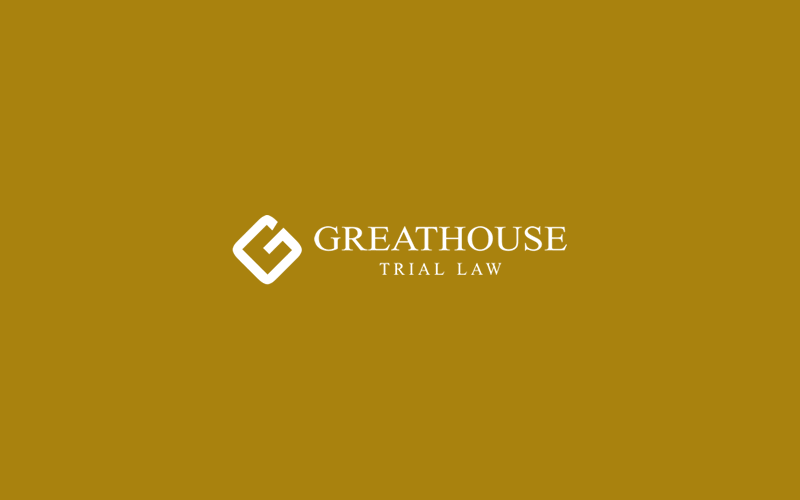
Invest in Dubai Property Today: Maximize Tomorrow’s Returns
- Dubai Business and Tax Advisors
- Real Estate
- 2025-11-27 14:49:32
- 2257K
Introduction: A Glimpse of Possibility
Late one evening, sitting on a high-rise balcony overlooking the shimmering skyline of Dubai, I watched as lights flickered on across the city. Each glowing window told a story: young professionals settling in, families creating a home far from their roots, global entrepreneurs forging new ventures. Among those stories, I envisioned one of mine: renting out an apartment, collecting a stable income, and seeing the value climb over the years. That vision was the moment I decided to invest in Dubai Property.
Maybe you have wondered whether such a step is worth it. Maybe you are cautious about foreign real estate, unsure about returns, legalities, or market dynamics. This article is built to guide you through the decision, telling you what works, what to watch out for, and how to approach this as a serious investor. I’ll walk you through the strengths of the Dubai Property Market, compare strategies, highlight potential pitfalls, and map out a roadmap for long-term success.
Why Dubai Is More Than Just a Dream for Investors
Tax-Efficient Income and Ownership Clarity
One of the biggest advantages you investing in Dubai Property is the favourable tax environment. Dubai offers rental income and capital gains free from local taxation, which dramatically improves the net returns on your investment. That alone sets this market apart from many global alternatives where taxes can significantly erode profitability.
Additionally, foreign investors have the right to full ownership in designated freehold zones. Ownership rights are clearly defined, and regulatory frameworks support transparent registration and resale. This clarity removes many of the common obstacles foreign buyers face elsewhere.
Demand Dynamics: Residents, Expats, Tourists
The city of Dubai remains a magnet for expatriates, global professionals, and travellers alike. The mix of long-term residents and a recurring influx of tourists or short-stays creates strong demand for both long-term leases and holiday rentals.
That demand supports healthy occupancy rates, which in turn makes rental yield a viable and attractive prospect. When managed correctly, rental income becomes a stable component of an investor’s returns, and as demand remains consistent, so does income potential.
Long–Term Value Growth
Beyond rental yield, the Dubai Property Market has shown a track record of capital appreciation. As infrastructure expands, new developments emerge, and the city continues to diversify economically, properties bought today in growing neighbourhoods stand to benefit from rising property values over time.
For investors who take a medium to long-term view, real estate here becomes more than periodic income; it becomes a substantial wealth-building vehicle.
Global Appeal and Accessibility
As a centre of global commerce, tourism, and innovation, Real Estate Dubai holds appeal for a worldwide audience. This global interest ensures there’s always demand, whether from expatriates relocating, foreign investors looking for rental returns, or international buyers seeking a second home.
That accessibility, combined with the legal ability for foreigners to own property outright where permitted, makes Dubai a rare global real estate destination that welcomes international capital without complex restrictions.
Reading the Signs: 2025 Market Dynamics and Opportunity Landscape
Resurgence in Activity and Investor Confidence
During the recent period, the Dubai Property Market has shown strength in transaction volumes. Domestic and international buyers alike are showing renewed interest. This resurgence reflects not only investor confidence but also improved liquidity and a stable market environment.
When a property market moves with such momentum, it usually signals favorable conditions for buyers: competitive pricing, available inventory, and potential for upward growth as demand continues.
Balanced Supply and Varied Investment Opportunities
The market now offers a mix of ready (completed) properties, resale units, and off-plan developments. This variety caters to different investor strategies. For those seeking immediate rental income, ready properties offer an advantage. For others focusing on long-term gains, off-plan opportunities allow entry at lower prices and potentially higher appreciation.
Importantly, the supply seems balanced, not overwhelmingly saturated. That helps protect value and supports stable rents, especially in well-chosen neighbourhoods or communities with strong demand.
Diverse Demand Drivers R:esidents, Professionals, Tourists
Ongoing expansion in business, tourism, and expatriate relocation means demand remains multi-pronged. Professionals relocating for work, families seeking quality living standards, and global travellers looking for short-term stays all contribute to rental demand.
This diversity helps cushion against market cyclicality. If one segment slows (for example, short-term tourists), another (long-term residents) may still sustain demand. For investors, this creates a safety net for rental income.
Two Main Investment Paths: Stability or Growth: Which One Fits You?
When you decide to invest in Dubai Property, you effectively choose between two main approaches, both valid, but oriented around different goals.
Option 1: Ready Properties Cash Flow and Immediate Returns
Why choose this path
Move-in ready or rentable immediately.
Predictable cash flow from rentals.
Ability to assess neighbourhood, amenities, and tenant demand before purchase.
Potential for financing via mortgages, even for foreign buyers in certain cases.
Best suited for
Investors focused on stable income rather than long-term speculation.
Those who prefer lower comparative risk and clearer visibility on returns.
Individuals who value flexibility, renting, selling, or holding as needed.
Option 2: Off-Plan Projects Growth Potential for Tomorrow
Why choose this path
Lower upfront price and payment flexibility (staged or instalments).
Opportunity to purchase ahead of development before value appreciation kicks in.
Potential for higher returns upon completion and handover if market conditions remain favourable.
Risks and trade-offs to consider
Waiting period during construction when no rental income is possible.
Dependence on the developer's track record and timely delivery.
Market volatility final market value depends on future demand and economic conditions.
Best suited for
Investors who have a medium to long-term horizon (3–5 years or more).
Those with risk tolerance and readiness for temporary illiquidity.
Buyers are aiming for value appreciation more than immediate cash flow.
Building a Sound Investment Strategy for Real Estate in Dubai
Approaching property investment without a plan is like sailing without a compass. A successful UAE Investment in real estate requires a structured method. Here’s how you build that plan.
Step 1: Clearly Define Your Goals
Before you even look at properties, ask yourself:
Are you investing for immediate rental income, long-term capital growth, or both?
What is your time horizon: short (2–4 years), medium (5–7 years), or long (10+ years)?
What is your risk tolerance: conservative, balanced, or aggressive?
Your answers determine whether a ready apartment or an off-plan unit makes sense, and how much flexibility you need in financing and exit strategy.
Step 2: Choose Location Based on Demand and Growth Potential
Location remains among the most critical factors in the Dubai Property Market. High-demand zones near business hubs, good transport links, quality schools, and lifestyle amenities typically offer better occupancy and stronger appreciation.
Avoid chasing prestige or luxury alone. Instead, lean toward practicality, balanced communities, mid-market apartments, or neighbourhoods showing upcoming infrastructure growth.
Step 3: Crunch the Numbers Realistic Yield vs. Cost
Yield looks good on paper, but reality accounts for:
Service charges, maintenance, vacancy periods, management fees
Entry cost vs expected rental income
Long-term growth potential vs interest rates and carrying costs
Do rough calculations for best and worst-case scenarios before committing.
Step 4: Vet Developers, Paperwork, and Legal Standing
Especially for off-plan purchases:
Research the developer’s history and previous project delivery records
Confirm legal approvals, escrow account protections, and the title registration process
Review payment plans, any cancellation clauses, and handover timelines
Never rely solely on glossy brochures or marketing hype. Rigorous due diligence is non-negotiable.
Step 5: Diversify Your Approach Blend Income and Growth
If your budget allows, combining both strategies can yield a balance:
Acquire one ready unit for immediate rental income
Pick one off-plan property for potential appreciation over the long term
This approach hedges risk, balances liquidity, and positions you for both cash flow and capital growth.
Step 6: Plan Your Exit Strategy Early
Real estate is not as liquid as stocks or bonds. Properties may take time to sell, and market conditions may shift. Design an exit plan based on:
Market cycles
Personal financial needs
Medium to long-term goals
Having an exit framework ensures you don’t get stuck holding an asset when opportunity or liquidity is needed.
A Hypothetical Investor Journey: From Vision to Returns
Let me share a possible journey illustrating how a well-calculated approach in Real Estate Dubai can unfold over time.
2022: An investor (we’ll call him Farhan) purchases an off-plan one-bedroom apartment in a developing community. He pays a 20 percent down payment and commits to a 2-year payment instalment schedule.
2024: Construction completes, and the building is ready for handover. Farhan now owns the apartment outright and has a clean title.
2025: The neighbourhood has matured with new retail outlets, improved transport links, and increasing interest from young expatriates. Farhan rents out the apartment at a healthy rate, yielding roughly 7.5 percent gross annually.
2030: Demand in that area has surged further due to business growth, new infrastructure, and rising interest in mid-market homes. The apartment’s market value has increased by 30–35 percent compared to the 2022 purchase price. Combined with ongoing rental income, Farhan’s investment has significantly outperformed many global real estate alternatives.
That journey illustrates how patience, a long-term horizon, and strategic asset selection in Dubai real estate can yield both stable income and solid appreciation.
Common Mistakes Investors Make And How to Avoid Them
Even with strong fundamentals, many fall into traps. Here are the typical missteps and how a disciplined investor avoids them.
Chasing luxury over demand: High-end villas or penthouses may look glamorous, but yield and liquidity might be poor. Better returns often come from modest apartments in high-demand areas.
Neglecting ongoing costs: Service charges, maintenance, vacancy gaps, these reduce net yield significantly if overlooked. Always budget conservatively.
Following frenzy or hype: Buying solely because a neighbourhood is trending can backfire if supply floods or market sentiment shifts. A long-term perspective and diversified approach reduce risk.
Skipping due diligence on off-plan projects: Assuming timely delivery or overestimating demand without verifying the developer's reputation can lead to delays or value drops.
Over-concentration in one asset type: Putting all funds into off-plan or luxury properties increases risk. A balanced portfolio offers resilience.
Who Should Seriously Consider Investing in Dubai Property, And Who Should Pause
Good Fit For:
Investors seeking tax-efficient income and long-term capital appreciation
Individuals with a horizon of 5 years or more and the ability to ride out market cycles
Those comfortable with property management or using credible management services
Investors wanting diversification beyond traditional markets, in a stable global city
Less Suitable For:
Individuals seeking quick flips or speculative short-term gains (real estate is slow-moving)
People who cannot commit to due diligence or are attracted only by luxury without assessing yield
Buyers expecting ultra-high yields from high-end luxury properties return are often modest and risky
Investors needing immediate liquidity or frequent buying and selling
Conclusion: A Strategic Move for Forward-Thinking Investors
To invest in Dubai Property today is a wise decision, provided you approach it with clarity, discipline, and realistic expectations. The Dubai Property Market offers a powerful combination of tax-efficient income, strong rental demand, transparent ownership laws, and long-term growth potential.
However, success in Real Estate Dubai does not come from hype or shortcuts. It requires careful planning, well-informed choices, and a balanced strategy that aligns with your goals. If you adopt a thoughtful plan blending stable rental income with long-term appreciation, this city’s real estate environment can become a cornerstone of your UAE Investment portfolio.
With patience, foresight, and strategic decisions, Professional Property Advisors, Dubai’s real estate becomes more than an investment; it becomes a long-term advantage for your wealth journey.
Leave a Reply
Please login to post a comment.









0 Comments